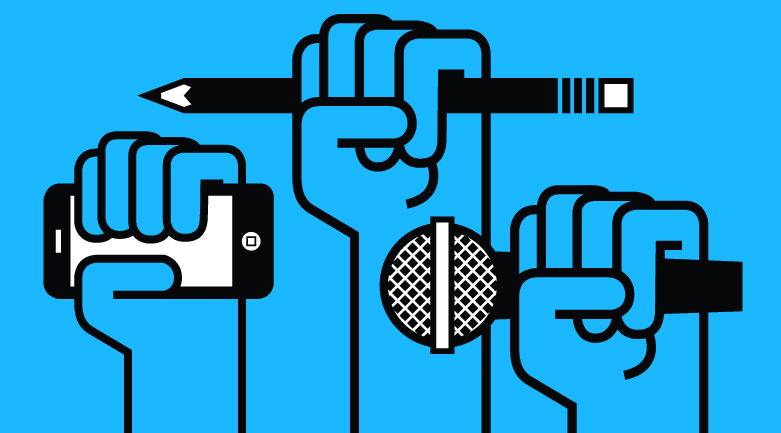We all know about the four pillars of democracy, but there is a fifth pillar which is seen as controversial.
“They are slaves who fear to speak, for the fallen and the weak“
What are Protests?
Protests in simple words can mean ‘Public Outcry’. The government makes many laws. Eventually, common mass does not support some of them. Hence, people question these laws. When nothing falls on deaf ears, people revolt. One of the best methods to show disappointment is Protest. Protests are for the people, of the people and by the people. Rather than sitting hand on hand, people unite. With a common demand, they raise their voice against injustice. They showcase their grievances and problems. Not only in India but in the whole world we see Protests. From North to South and from East to West- everyone has seen them. Presently, in so many countries people are doing Protests. It is a revolutionary idea to bring amendments to unsuitable laws.

Pillars of Democracy:
There are four pillars of Democracy- Legislature, Executives, Judiciary, Media and then comes the fifth pillar of democracy – PROTEST. We can say that democracy without or limited allowance of protests is hollow and facade. By not listening to their pleads, the government sometimes tries fooling general mass and cajoles them.
Constitution on Right to freedom of Expression:
1.According to Article 19 1(A):
Freedom of Speech and Expression is the fundamental right of every citizen of India and it’s our right to ask the government to listen to us. We can ask to make changes in policies.If it does not listen, we can do mass movements to show our disdain. Protest plays a key role in our political participation in the issues of the country. By this we have right to
a) Speak our own wish
b) Keep our opinion
c) Practice any profession
d) Have residence anywhere in the country
2. Article 19 1(B):
a) civilians can assemble peacefully without arms
b) make associations and groups
c) hold discussions and meetings
d) take out processions

Why do Protests?
- It makes people active social being
- Increases our scope of thinking
- Shows the flaws in the policy making
- Apart from this, helps government to know what people are unanimously against of
- Makes right of freedom and expression to run through properly
History is the oldest witness of our right to do protests. Also,our ancestors also used to do this and till today we follow their idea of Protests
History-the witness of Protests:
Firstly, Dandi March by Mahatma Gandhi against the salt law of the British Government- Salt Satyagraha
Secondly,Teinanmen Square where people of China yearned for a democratic government and their right to freedom
Thirdly,Indian Anti-corruption protests happened and people questioned the corrupt government. They did hunger strike under the leadership of Anna Hazare
Fourthly, around 494 BC in Sessecio Plebis people, abandoned the city after suffering the tortures of rich nobles.
Fifthly, protests and mass movements lead by Martin Luther King . People showed their wrath against the laws because it restricted Black African Americans to do certain jobs . Therefore, taking away of some basic human rights.
Sixthly, Million Mask March of 2013, in which people showed anger against austerity and extreme inequality.
Seventhly, Protests in Hong-Kong against the laws of taking the trials of criminals of Hong-Kong in China which are taking place now in 2019.
Various styles of Protests:
Firstly, long Marches from one location to other, public demonstrations by calling out slogans and hooting, tying of black strips on wrists and shoulders.
Secondly, posing posters and flags,holding placards and leaflets with short messages on them, forcefully crossing barricades and disobeying the police.
Thirdly, burning of dummies of politicians and other items, holding placards and leaflets and sitting or standing silently, doing candle marches etc.
Fourthly, boycotting and throwing away of items like vegetables,milk, clothes etc.
Regardless, we can say protest is a great idea. Above all, it can bring changes not only in the country but also throughout the world. It brings into notice the problems of the people in front of the whole world and helps to bring swift actions against it. It rectifies the problem in time lesser than individuals.

CONCLUSION:
As we have all heard the saying that two heads are better than one. Thus, we must get united and question the laws as laws are made for us only. But, we must remember that the protests must not be for some useless selfish motive but for the betterment of the society. We do protests and make demands so that we can grow on the national as well as international basis. we want to give our coming generations a better future let them thrive well. By making a better world we can have healthy and rational young ones. However, protests must not be a cause of destruction, mob-lyinching, ruining of public transports and must not cause trouble to anyone. In conclusion, we must understand that protests are just to safeguard our economic, political and social lives. Thus we must all uphold the fifth pillar of democracy i.e. protests.
What do you think? Are protests the fifth pillar of democracy or just sedition? Discuss in the comments below

